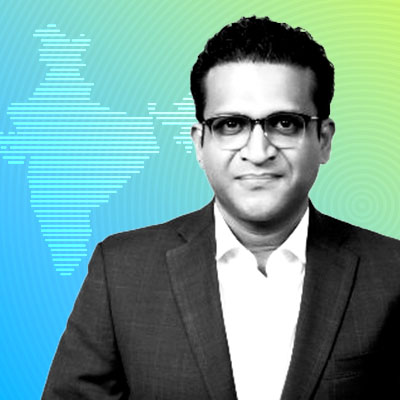The West must realise India’s climate policy choices are complex
Originally Published in the Hundustan Times and MSN - July 6, 2022

An all too common element in the discourse surrounding the climate crisis is the difference between rich and emerging nations. From the Indian point, the international climate community — from industrialised nations to multilateral organisations — would better serve the common cause of the climate crisis if they fully grasp the dilemmas of growing economies.
Far too often, international voices feel compelled to speak up about issues in India without seeming to appreciate its circumstances, growing geopolitical and economic importance, and role in mitigating the crisis. While foreign commentary should continue, critics must also recognise historical cause and effect.
The climate crisis is caused by actions of the past. This recognition is at the heart of India’s demands for funding for green transitions and climate justice. India and other emerging economies do not want to pay the price for the damage they did not cause. The industrialised world’s failure to honour the financial promises made in Paris has not just been disappointing; it also threatens to become the geopolitical failure of our age. International activists then argue that they are criticising the U.S. and Europe as well. But what they fail to do is channel their ire primarily toward these countries. The U.S., for instance, has seen a frightening rise in extreme weather and a depressing lack of consistency in climate policy. Similarly, Europe struggles to ease its dependency on fossil fuels. These are the rich countries whose centuries-old extraction of hydrocarbons creates the pressure for innovation in the energy transition. The hectoring of India, therefore, is misdirected.
Conversely, insights from within India elicit a different response. That’s because this voice — mostly from civil society groups — represents local communities with a firm grip on ground realities. This authenticity is a strength for India; there is no space for climate deniers.
India’s razor-sharp focus on identifying climate goals and building mitigation strategies is enviable, especially as a developing nation with a dual role in climate mitigation and the economic prosperity of its people. In renewable energy, the target is an ambitious 50% of all energy needs to be met by renewables by 2030, which is the equivalent of 500 GW of renewables’ capacity.
The flip side is that 50% is not renewables. This means that the energy mix in India’s growing economy will continue to see a significant portion of fossil fuels. There is no other path for India to meet its energy demand while raising the living standards of its people and providing a market for foreign manufacturers. This is not lost on policymakers for India is not betting on coal, but considers it a necessary evil.
This, then, is the policy dilemma often misunderstood by an international community that tends to argue with certitudes, not nuance, which, in turn, leads to a hardening of positions across the spectrum. Real progress requires us to move beyond facile rhetoric.
In that spirit, here are some views from the outside that understand the nuances that come with mitigation:
- One, emissions from thermal power generation need to be reduced — because 100% renewable capacity is still a long way away for India.
- Two, support for accelerating the deployment of renewables must be deepened.
- Three, the cost and capacity risks associated with storage technologies must be overcome.
- Four, India cannot do this alone.
Foreign capital and expertise remain indispensable partners in supporting India’s transition to a bigger, cleaner, and more inclusive economy. For this, India requires technical assistance to accelerate the adoption of new technologies or models; deeper collaboration between industry and research to catalyse local climate tech solutions and, in turn, encourage more international investments; to amplify the case for climate financing as part of a broader climate justice narrative.
If the global climate movement can grasp the complex policy choices that India must make between energy, emissions, and growth, then we all might just arrive at a position of meaningful consensus — and justice.
Hisham Mundol is chief adviser-India, Environmental Defense Fund. The views expressed are personal.










